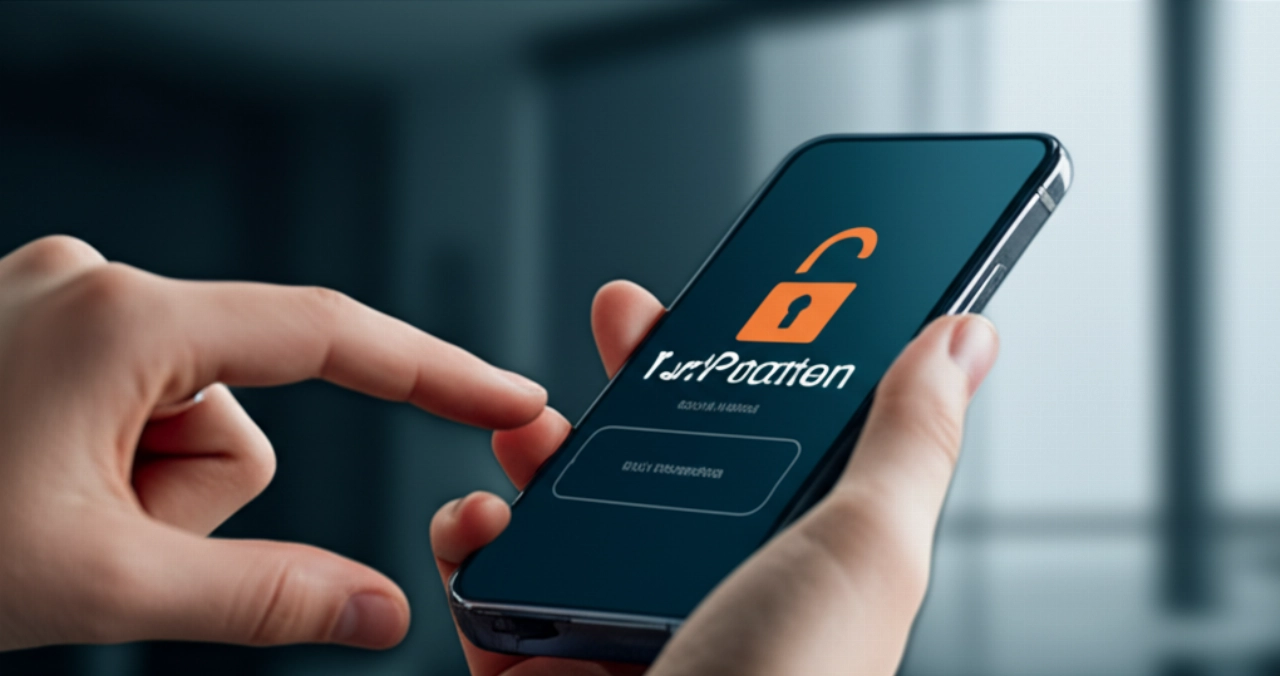Imagine the headline: 'Major Enterprise Suffers Catastrophic Data Breach, Customer Trust Shattered.' For enterprise e-commerce, payment security isn't merely a compliance checkbox; it's the bedrock of your brand's reputation, the guardian of your revenue, and the silent enabler of growth. Yet, the landscape of digital threats is evolving faster than most platforms can adapt, leaving CTOs and E-commerce VPs grappling with the terrifying prospect of a scalability ceiling, integration hell, or the 'one-size-fits-all' trap of generic solutions.
At Commerce-K.com, we understand that true ecommerce payment security extends far beyond basic encryption. It’s about engineering a future-proof, resilient commerce ecosystem that not only protects every transaction but actively fortifies your revenue streams and builds unwavering customer trust. This guide will illuminate the strategic imperatives for enterprise-grade payment security, transforming a perceived cost center into a powerful competitive advantage.

Beyond Compliance: How Robust Ecommerce Payment Security Drives Enterprise Growth and Trust
In the enterprise realm, payment security is not just about avoiding fines; it's about unlocking strategic advantages. While adherence to standards like PCI DSS compliance is non-negotiable, it represents the floor, not the ceiling, of your security posture. True enterprise security is a proactive investment that directly impacts your bottom line and market position.
- Enhanced Customer Loyalty: A secure checkout experience builds confidence. Customers are more likely to return and recommend a brand they trust with their sensitive financial data. This directly translates to higher Customer Lifetime Value (CLTV).
- Reduced Fraud and Chargebacks: Advanced security measures, including sophisticated fraud detection systems, significantly reduce instances of fraudulent transactions and subsequent chargebacks. This saves not only direct financial losses but also the operational overhead of dispute resolution.
- Uninterrupted Revenue Streams: A robust security framework minimizes the risk of system downtime due to breaches or attacks. Every minute of downtime is a direct loss of revenue, particularly during peak sales periods where a performance bottleneck can be catastrophic.
- Brand Reputation as a Competitive Moat: In an era of constant cyber threats, a reputation for impenetrable security becomes a powerful differentiator. It signals reliability and trustworthiness, setting you apart from competitors who might be relying on less secure, 'good enough' solutions.

The Hidden Costs of Compromise: Why 'Good Enough' Payment Security Is a Multi-Million Dollar Risk
Many enterprises fall into the trap of viewing payment security as a necessary evil or a cost to be minimized. This often leads to reliance on basic, 'off-the-shelf' security features provided by generic SaaS platforms, or worse, a patchwork of disconnected solutions. The reality is, inadequate security is a ticking time bomb, and the fallout from a breach can be catastrophic, far exceeding the cost of proactive investment.
- Direct Financial Losses: Fines from regulatory bodies (e.g., PCI DSS non-compliance), legal fees from class-action lawsuits, and the cost of credit monitoring for affected customers can quickly escalate into multi-million dollar figures.
- Reputational Damage and Lost Sales: A data breach erodes customer trust instantly. News spreads fast, leading to a significant drop in sales, a damaged brand image, and long-term difficulty in customer acquisition. This is the ultimate fear of a failed migration, but for your entire brand's integrity.
- Operational Disruption: Investigating a breach, remediating vulnerabilities, and rebuilding systems can bring your commerce operations to a grinding halt. This diverts critical resources and creates an operational nightmare akin to integration hell, but with far more severe consequences.
- Escalating Total Cost of Ownership (TCO): While a cheap solution might seem appealing upfront, the long-term TCO of managing vulnerabilities, responding to incidents, and constantly patching an insecure system far outweighs the investment in a strategically engineered secure platform.

Engineering a Fortified Commerce Ecosystem: Key Pillars of Enterprise Payment Security
Building a truly secure enterprise commerce platform requires a multi-layered approach, integrating advanced technologies and best practices into the very fabric of your digital infrastructure. This isn't about adding a plugin; it's about architectural integrity.
- Data Tokenization and Encryption: Sensitive payment data should never reside unencrypted on your servers. Tokenization replaces actual card numbers with unique, non-sensitive tokens, while robust data encryption protects data at rest and in transit. This significantly reduces the scope of PCI DSS compliance and the risk of exposure.
- Advanced Fraud Detection Systems: Leverage AI and machine learning to analyze transaction patterns in real-time, identifying anomalies and potential fraud before it impacts your business. These systems are crucial for proactive risk management and effective chargeback prevention.
- Multi-Factor Authentication (MFA): Implement MFA for all administrative access to your commerce platform and critical systems. For high-value B2B transactions, consider offering MFA to customers for enhanced security and trust.
- Secure API Integrations: Your commerce platform doesn't exist in a vacuum. Secure, API-first integrations with ERP, PIM, CRM, and WMS systems are paramount. Each integration point is a potential vulnerability if not meticulously secured, preventing the dreaded integration hell from becoming a security nightmare.
- Regular Security Audits and Penetration Testing: Proactive identification of vulnerabilities through continuous monitoring, regular security audits, and ethical hacking (penetration testing) is essential. This ensures your defenses are constantly evolving against new threats.
- Vendor Due Diligence and Supply Chain Security: Your security is only as strong as your weakest link. Meticulously vet all third-party vendors and ensure their security practices align with your enterprise standards.
Your Strategic Partner in Digital Trust: The Commerce K Approach to Payment Security
At Commerce-K.com, we don't just implement security features; we engineer comprehensive, resilient commerce architectures designed to protect your enterprise from the ground up. We understand that your business isn't 'one-size-fits-all,' and neither should your security strategy be.
Our approach goes beyond generic solutions, focusing on:
- Custom Architecture Design: We design payment security frameworks tailored to your unique business logic, complex pricing models, and B2B workflows, ensuring seamless integration with your existing enterprise systems without creating an integration hell.
- Performance-First Security: We ensure that robust security measures enhance, rather than hinder, your site's performance. Our solutions are optimized to prevent performance bottlenecks, even during peak transaction volumes.
- Future-Proof Scalability: Our security solutions are built to scale with your growth, ensuring that your payment infrastructure can handle increasing traffic and transaction complexity without hitting a scalability ceiling.
- Risk Mitigation and Compliance Expertise: We guide you through the complexities of PCI DSS and other relevant regulations, ensuring continuous compliance and proactive risk management, alleviating the fear of a failed migration due to security oversights.
- End-to-End Partnership: From initial security audits and strategic planning to implementation, ongoing monitoring, and incident response, we act as an extension of your team, providing unparalleled expertise and peace of mind.
Frequently Asked Questions about ecommerce payment security
As enterprise leaders, you have critical questions about the practical implications and ROI of advanced payment security. Here are some common concerns:
Q1: How does advanced payment security impact our site's performance and conversion rates?
A1: When engineered correctly, advanced security measures like tokenization and optimized fraud detection have minimal to no impact on performance. In fact, by building customer trust and preventing friction from false positives, they can actually improve conversion rates. Our focus is always on high-performance security.
Q2: What is the typical ROI on investing in enterprise-grade payment security solutions?
A2: The ROI is significant, though often preventative. It's measured in avoided losses (fines, legal fees, fraud), preserved brand reputation, increased customer loyalty, and uninterrupted revenue streams. Proactive investment is almost always a fraction of the cost of recovering from a major breach.
Q3: How do you ensure compliance with evolving regulations like PCI DSS without disrupting our operations?
A3: We integrate compliance requirements into the architectural design from the outset, rather than as an afterthought. Our solutions leverage techniques like tokenization to reduce your PCI scope, and we implement continuous monitoring and audit readiness to ensure ongoing compliance with minimal operational disruption.
Q4: Can you integrate advanced security features with our existing legacy systems (ERP, CRM, WMS)?
A4: Absolutely. Our expertise lies in complex enterprise integrations. We design secure API layers and middleware solutions that enable seamless, protected data exchange between your commerce platform and legacy systems, mitigating the risks of integration hell.
Q5: What measures do you take to prevent data breaches during a platform migration?
A5: Data security during migration is paramount. We employ strict protocols including data encryption during transit and at rest, secure data mapping, phased migration strategies, and rigorous pre- and post-migration security audits. Our goal is zero data loss and zero exposure, alleviating the fear of a failed migration.
Stop navigating technical debt. Your business deserves a clear digital commerce roadmap that delivers measurable results. The first step isn't a quote; it's a no-obligation Scoping & Strategy Session with our senior architects. We'll help you map your potential and de-risk your investment. Click here, tell us about your project, and discover the opportunities you're currently missing. Start building your future-proof commerce engine today.
Now that you understand the critical importance of robust payment security, explore how we execute a seamless ecommerce migration service or delve deeper into the benefits of headless commerce architecture for ultimate flexibility and security.





